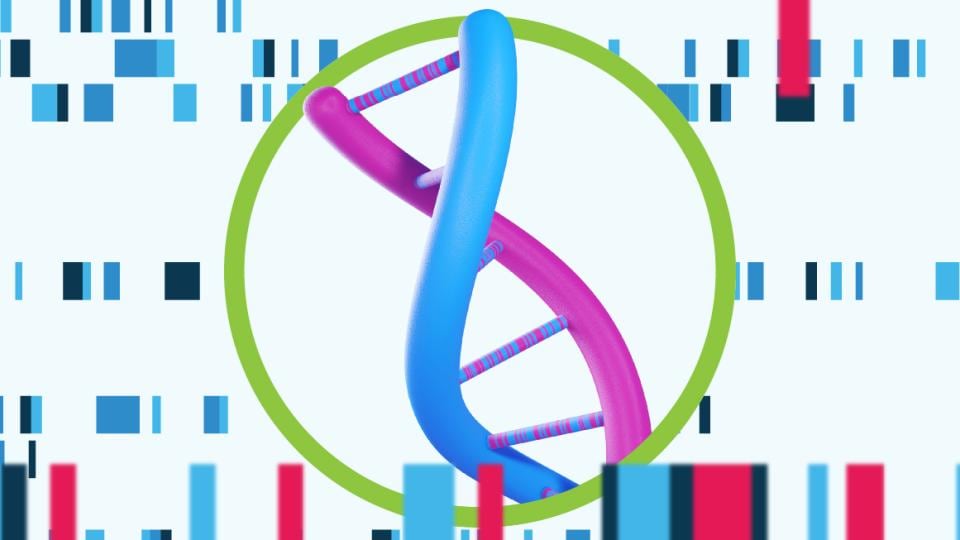What does the future hold for cancer patients?

Although we have made great progress in fighting cancer and many treatments are already available there is still high unmet medical need for many kinds of cancer. It is still a leading cause of death worldwide, accounting for nearly 10 million deaths in 2020. But where do we stand in the fight against cancer – will we one day defeat it?
Why do we need treatments that go beyond chemotherapy?
Conventional cancer therapy often comes with severe side effects. Chemotherapy, for example, kills a lot of the cancer cells but it also kills a lot of healthy cells. This is the reason for many side effects that patients suffer from when undergoing chemotherapy.
Therefore, a lot of research goes into new therapies that attack cancer in a targeted and increasingly differentiated manner in order to generate the best possible effectiveness with tolerable side effects.
The goal of modern treatments is to directly target the abnormal mechanisms and the drivers of the tumor and thus limit damage to the surrounding healthy tissue. As these treatments specifically attack the unique nature of the tumor, patients can potentially experience much fewer side effects.
Where do we stand in the fight against cancer?
Although more people are being diagnosed with cancer and it is still the leading cause of death, the number of people dying from cancer is declining and survival rates are improving continuously. In the US for example, survival rates across all cancers have increased over the last decades from 50% to more than 67% – meaning that 2 of 3 cancer patients are alive after 5 years. Also in Europe, there have been increases in 5-year survival rates for the most common cancer types in all countries.
Take prostate cancer, the second most prevalent cancer in men worldwide: With 5-year survival rates between 90-98%, we are now even able to redefine some cancer types as a chronic disease. For patients this means more moments together with their family and friends – more moments to enjoy life.
The most important reasons for this positive development: Advances in diagnosis as well as our understanding of the disease have led to better and more tailored treatment approaches. We now know that there is enormous variability between patients, even if they suffer from the same type of cancer. Increasingly, the therapy selection in oncology can be tailored to the individual patient and disease characteristics, to improve the likelihood of patients responding to treatment. Where treatment choices exist, patient preferences play an increasing role in discussions between the doctor and the individual patient to determine the best therapy approach and ultimately, improve the outcome of the therapy.
Because of the multifaceted forms of cancer, precision medicine takes into account the variability of patients and looks for genomic alterations that drive a specific cancer, thus allowing doctors to much better tailor and target the treatment for the individual patient.
Molecular testing is a prerequisite to determine a patient’s eligibility for precision medicine treatments. The goal is to give the right cancer treatment to the right person at the right time, determined by the specific patient characterization.
What does the future hold for cancer patients?
Precision medicine is supported by significant progress in molecular testing, with next generation sequencing allowing the detection of the genomic alterations which drive tumor development and providing critical insights into a patient’s likely response to treatment.1 Instead of a “one-size fits all solution”, the treatment approaches will be highly specific in the future and even more tailored to treat each person’s individual tumor.
For example, we will continue to see more drugs that are targeted to intervene in specific intracellular signaling pathways of tumor cells, to slow or stop the tumor growth. Where possible, this will be linked to a certain biomarker testing to identify the patients who are more likely to benefit from this treatment.
Another approach is to reactivate the immune system in the vicinity of the tumor so that the immune cells continue to recognize the tumor and can then destroy it themselves.
Fight against tumors with alpha radiation
Radiotherapy continues to play an important role in the treatment of many cancers, applying radiation from the outside to reduce the tumor in size. With targeted radionuclide therapies, it is now possible to bring radiation directly to the tumor inside the body. Different radionuclides — alpha or beta emitters — can be used and various drug candidates are currently in development. At Bayer, the focus is on Targeted Alpha Therapies, an emerging class of radionuclide therapy for different types of tumors with a high unmet need. Here, high-energy alpha radiation can induce DNA double strand breaks in the tumor cells and inflict difficult to repair damage that will eventually kill the cells. The goal is to achieve a high anti-tumor effectiveness while at the same time minimize damage to the surrounding healthy tissue. In prostate cancer, the concept is already working and offers an alternative treatment option to chemotherapy for men with metastatic disease.
A specific form of targeted alpha therapies are Targeted Thorium Conjugates. They combine the alpha radionuclide thorium-227 with a tumor-specific agent, such as an antibody or another targeting molecule, capable to deliver the alpha radiation to the tumor cell. In addition to the direct anti-tumor effect of the alpha radiation, research indicates that it may also trigger an activation of the immune system in the tumor microenvironment. Targeted radionuclide therapy could also enable a targeted fight against tumor metastases that have spread in the body, an advantage over external radiation therapy.
Targeted Thorium Conjugates: Delivering alpha radiation selectively to cancer cells

What can cancer patients do themselves to improve the outcome of their therapy?
Every year more drugs are developed against new targets or leveraging new mechanisms. However, patients and caregivers are not always aware of the benefits of these newer treatments with high efficacy and less side effects. We also see tremendous developments for diagnostics which are essential to detect cancer and its drivers early in the patient´s individual journey of the disease to ensure optimal care. Some diagnostic tests, such as tumor genome tests for example, are not always part of the routine examination. As the speed of medical innovation in oncology continues at an unprecedented pace it is even more important that patients get a thorough understanding of their condition and are enabled to discuss their individual preferences with their physician. This is the path to shared decision-making and, ultimately, better outcomes for patients.
Here is what they can do:
Educate yourself and stay informed
The understanding of your condition and available treatment options is important for the discussion with your medical oncologist. Besides the information you get from your doctor, there are many cancer organizations and patient organizations which provide information on different cancer types, available treatment options and how to get support.
Keep your doctor's appointments
Even if you are afraid of the result or just not in the mood – regular visits to the doctor are important for a successful therapy. This is the only way to identify developments in the course of the disease in good time and treat them accordingly.
Prepare yourself for your visit to the doctor
The better you are prepared for your doctor’s appointment, the better you explain your condition and discuss your individual preferences. A list with notes could help you not to forget addressing your questions and concerns.
Ask for support
Ask a family member, friend or caregiver to accompany you to your appointment. They may also have questions to add to the discussion.
The fight against cancer will not stop in the future. But the aim of all the efforts is that patients who have been diagnosed with cancer, can receive the right treatment at the right time at the right dose – giving them more time, with more quality of life, or even let the cancer not return for the rest of their life.
Bayer in Oncology
Bayer is committed to delivering science for a better life by advancing a portfolio of innovative treatments. The company has the passion and determination to develop innovative medicines that help improve and extend the lives of people living with cancer. Bayer focuses its research activities on first-in-class innovations across the following scientific platforms: Precision Molecular Oncology, Targeted Alpha Therapies, and Immuno-Oncology. Across the areas of focus, we have several prostate cancer treatments on the market or in development, with the goal of extending survival while limiting side effects of treatment throughout the different stages of the disease.
1 https://ecpc.org/wp-content/uploads/2021/03/unlocking-the-potential-of-precision-medicine-in-europe-23022021.pdf




















